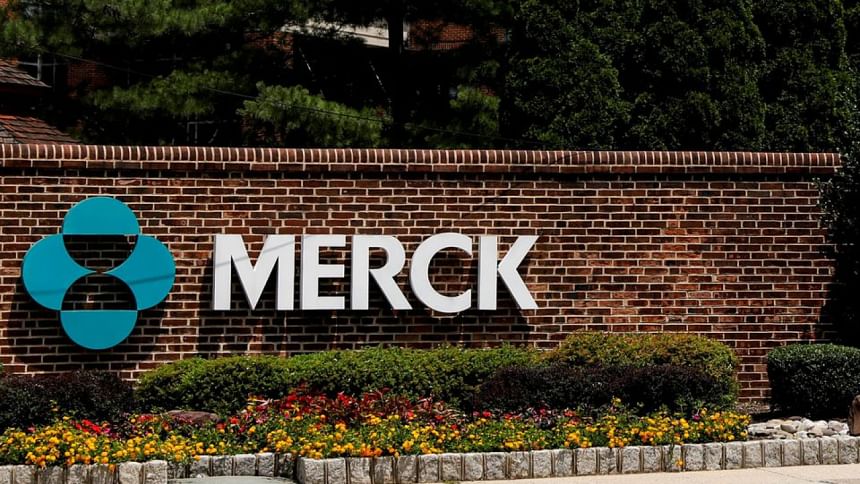Merck says research shows its COVID-19 pill works against variants

Laboratory studies show that Merck & Co's (MRK.N) experimental oral COVID-19 antiviral drug, molnupiravir, is likely to be effective against known variants of the coronavirus, including the dominant, highly transmissible Delta, the company said on Wednesday.
Since molnupiravir does not target the spike protein of the virus - the target of all current COVID-19 vaccines - which defines the differences between the variants, the drug should be equally effective as the virus continues to evolve, said Jay Grobler, head of infectious disease and vaccines at Merck.
Molnupiravir instead targets the viral polymerase, an enzyme needed for the virus to make copies of itself. It is designed to work by introducing errors into the genetic code of the virus.
Data shows that the drug is most effective when given early in the course of infection, Merck said.
The US drugmaker tested its antiviral against nasal swab samples taken from participants in early trials of the drug. Delta was not in wide circulation at the time of those trials, but molnupiravir was tested against lab samples of the variant behind the latest surge in COVID-19 hospitalizations and deaths.
Merck said earlier this year that a small, mid-stage trial found that after five days of molnupiravir treatment, none of the patients taking various doses of the drug tested positive for infectious virus, while 24 percent of placebo patients did have detectable levels.
Merck is currently conducting two Phase III trials of the antiviral it is developing with Ridgeback Biotherapeutics - one for treatment of COVID-19 and another as a preventive.
Merck anticipates that the Phase III treatment study will finish in early November, Grobler said.
The trial enrolled nonhospitalized COVID-19 patients who have had symptoms for no more than five days and are at risk for severe disease.
The latest analysis was presented during IDWeek, the annual meeting of infectious disease organizations, including the Infectious Diseases Society of America.
Shares of Merck were up 2.3 percent at $75.04 on Wednesday afternoon on the New York Stock Exchange.

 For all latest news, follow The Daily Star's Google News channel.
For all latest news, follow The Daily Star's Google News channel. 








Comments